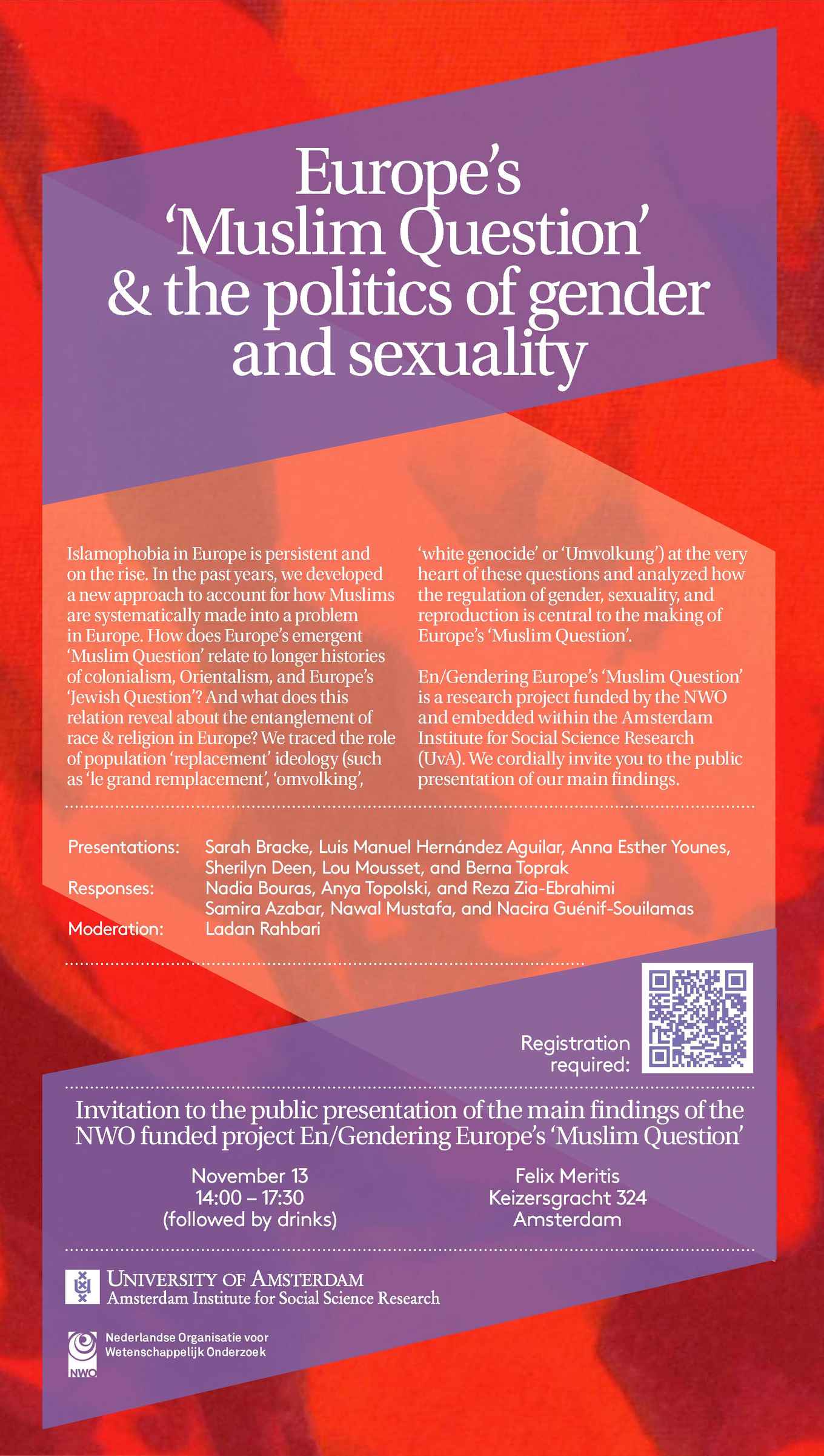Europe’s ‘Muslim Question’ & the politics of gender and sexuality
Public presentation of research findings
- Date
- 13 November 2025
- Time
- 14:00 -17:30
- Location
- Felix Meritis
- Organised by
- Sarah Bracke
How does Europe’s emergent ‘Muslim Question’ relate to longer histories of colonialism, Orientalism, and Europe’s ‘Jewish Question’? And what does this relation reveal about the entanglement of race & religion in Europe?
From 2018 on, the team of the Vici project En/Gendering Europe’s ‘Muslim Question’, traced the role of population ‘replacement’ ideology (such as ‘le grand remplacement’, ‘omvolking’, ‘white genocide’ or ‘Umvolkung’) at the very heart of these questions, and analyzed how
the regulation of gender, sexuality, and reproduction is central to the making of Europe’s ‘Muslim Question’.
On 13 November, they present their main findings during a public presentation in Felix Meritis, Amsterdam.
Presentations
- Sarah Bracke
- Luis Manuel Hernández Aguilar
- Anna Esther Younes
- Sherilyn Deen
- Lou Mousset
- Berna Toprak
Responses
- Nadia Bouras
- Anya Topolski
- Reza Zia-Ebrahimi
- Samira Azabar
- Nawal Mustafa
- Nacira Guénif-Souilamas
Moderation
Ladan Rahbari
En/Gendering Europe’s ‘Muslim Question’ is a research project funded by the Dutch Research Council (NWO) and embedded within the Amsterdam Institute for Social Science Research (AISSR) at the University of Amsterdam.
